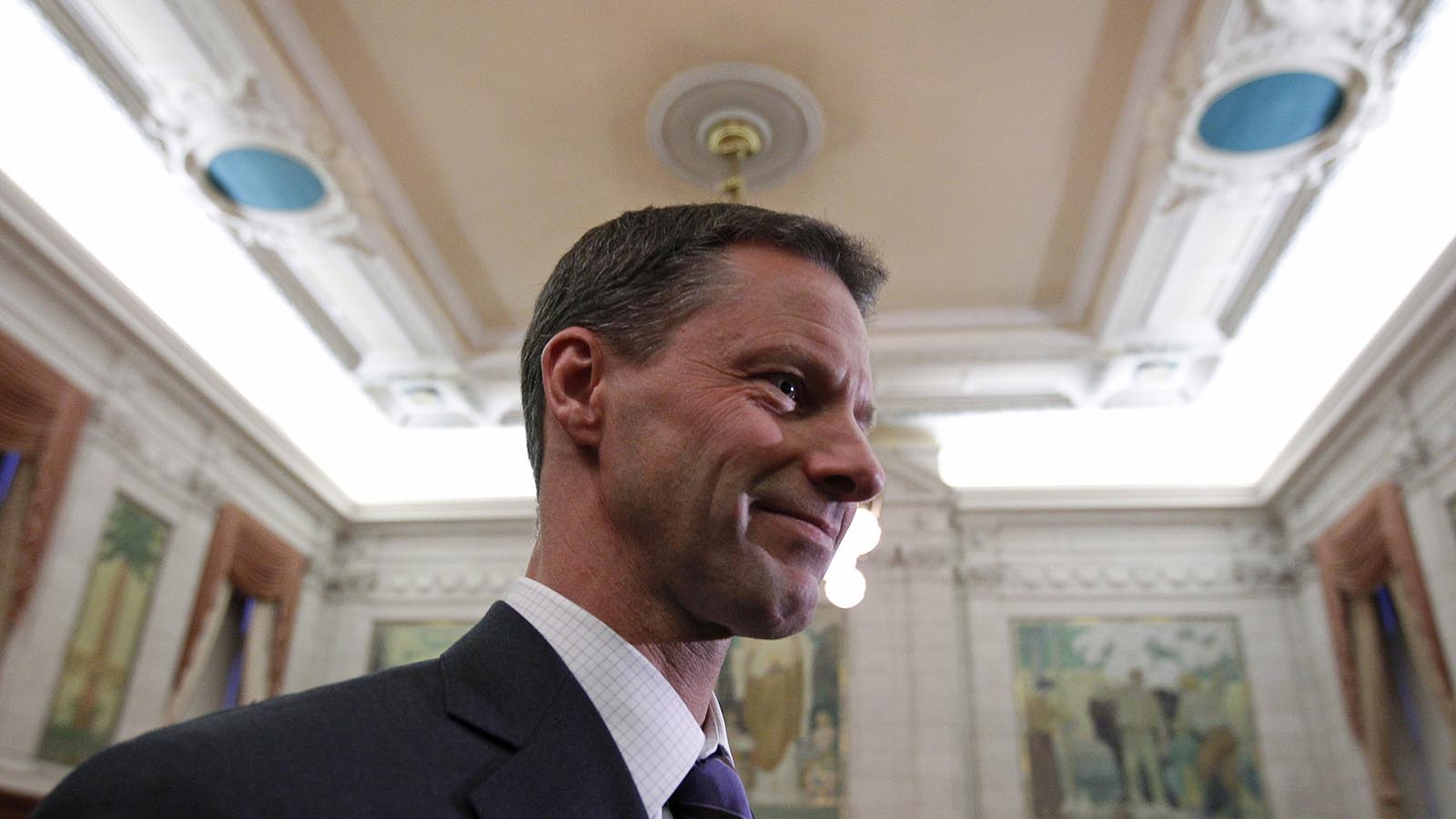Harper’s great gamble on ethics
Paul Wells on how Stephen Harper will weather any ethical storm
Chris Wattie/Reuters
Share

Spare a moment of pity for a punditocracy that’s lost its narrative. We’ve been covering the curious affair of the cheque to the senator for 11 months. And suddenly, the cops have stolen our denouement.
On April 16, the RCMP announced it won’t be laying charges against Nigel Wright, Stephen Harper’s former chief of staff, for writing a $90,000 personal cheque to pay off Sen. Mike Duffy’s expenses. Wright must have breathed easier. The Prime Minister must have breathed easier. But there was no joy in punditville.
Chris Hall, CBC: “Nigel Wright cleared, but questions won’t end with investigation.” Dan Leger, the Halifax Chronicle-Herald: “What is certain is that political questions around the Senate scandal will continue to swirl.” Andrew Coyne: “Just because no charges have been laid—against Wright; Duffy was given no such assurance—does not mean nothing happened here, or that it wasn’t wrong.” Stephen Maher: “But it’s up to politicians, not police or judges, to tell us how it is that the Prime Minister’s chief of staff is able to make a secret payment to a sitting legislator without facing criminal prosecution. There is no way that should be legal.” Chantal Hébert: “The partisan celebrations . . . are way out of line with the actual situation.”
I actually don’t disagree with my colleagues. Questions won’t end. In fact, they may swirl. And something definitely happened. But, in fairness, many of us skipped a bit too lightly over the first part of the analysis. The non-arrest of Nigel Wright is a huge relief for the Harper government, for big and simple reasons. Flip it around: If the PM’s former chief of staff had been handcuffed and bundled off, it would not merely have been a lousy day for Conservatives. It would have opened a whole new chapter of lousiness: months of trials and a steady drip of revelations about how the PMO operates at its worst; not pleasant. All of that is off the table now. This government has been in spectacular need of some good news. This qualifies.
That is, of course, assuming that Harper’s sometimes tone-deaf press shop can resist the urge to pop champagne corks in public. For it is indeed true that what Wright did was kind of gross. Unlike Mike Duffy, most of us don’t have millionaire political staffers with flexible standards to bail us out when we get into trouble. Stephen Harper came to office, like so many of his predecessors, swearing that whom you know in the PMO wouldn’t matter, as long as he was there. Now we know connections were crucial for Duffy, and Wright knew perfectly well how bad his actions would look. “I believed that my actions were always in the public interest and lawful,” he says now, through his lawyer. Really? Funny how he went to such lengths to keep them quiet at the time, then. He is right to be relieved that his actions were lawful, or not sufficiently blatantly unlawful for the police to follow through. But neither he nor his former colleagues are in any position to brag.
What they have won is limited but real: a respite. It will be instructive to see how Harper uses it. It has become increasingly obvious that he plans to stick around to lead the Conservatives into his fifth election as leader. With the election of a majority government in 2011, he seemed to have hit cruising speed at last. Instead, his government has often seemed jinxed—unable to find projects or themes that would have made the majority worth winning, and unable to secure a big win on energy exports or to repair relations with the Obama administration in Washington.
Unable, above all, to get its own message out. There was a time, as recently as a year ago, when the government believed it had a story to tell. Now it’s hunkered down, plainly afraid of news reporters and comically unable to tell a story without them. When Joe Oliver, the first Jewish finance minister in the country’s history, was sworn in at Rideau Hall, news photographers were banished. Harper’s private photographer took photos that did not show Oliver’s face, although you could see Stephen Harper quite well in the background. The PMO now devotes bewildering resources to the production of a weekly YouTube video digest of Harper’s adventures. Nobody watches it. The finance department’s own polling shows that fewer and fewer people even notice the television ads designed to laud the government’s stewardship of the economy.
Harper’s re-election strategy amounts to a bet. He believes nothing matters except the health of the economy. If it is robust, he can take credit. If it is shaky, he can warn it would be worse under the Liberals and New Democrats. In the meantime, voters will write off bouts of paranoia, toxic partisanship, penny-ante ineptitude and the occasional epic wallow in mercifully unindicted ethical swamps as the sort of thing any party would do in power.
It’s becoming a pretty safe bet that no ethical or criminal big bang will derail Harper’s plans. If he loses, it won’t be because a crony gets led off in chains. It’ll be a subtler thing, the sum of a thousand pouts and grudges. On current form, Harper loses. But much can change. He has been one of the most resilient and surprising politicians of the modern era. It’s just that it’s getting hard to recall when that was so.